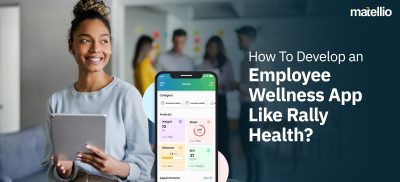
Mobile presence means a lot for the companies in the light of modern marketing realities. It provides a pool of possibilities to the market leaders and startups. As the mobile rush progresses, the increasing number of service providers acknowledge the leading role of the mobile experience in comparison to the desktops. Moreover, the website should not risk being mobile-friendly, hopes on customer enthusiasm and loyalty. Desktop application development is dominating the software world for decades. And the rise of the internet, websites, and applications took over the world at an incredible pace. Smartphones become popular, and the demand for mobile applications increases, pushing desktop applications into third place. Moreover, there’s an incredible amount of software development happening in desktop applications, don’t forget to include programs like Excel, Adobe, Photoshop, and the Chrome browser. So, The business builds desktop applications for a range of business clients. Moreover, a project that starts off in the right direction has more chances to be successful and more chances of ending up in the right direction.
Seven Questions You should Ask before Building Desktop Application
1. Who are the Target Users?
What problem exactly your app is going to solve for the users? And why is the desktop app the best way to solve this? Could a mobile responsive website be as good, or even a better way to solve the problem. What platforms they tend to use, as there are real demographic differences between iOS and Android platforms, that actually need to be thought through.
2. What Risks are there With the Desktop App Build?
What actually are the outside dependencies that could affect the timescales? Addressing this upfront could save you a lot of time and could save you from a lot of problems and queries further down the track. Building a risk register as a part of the project and being disciplined to keep this up to date is an appropriate idea. Ensure that for each risk, there are actions and owners responsible for managing down the risk of this affecting your successful and effective app delivery.
3. Who are the Key Stakeholders?
Think, think, think!! Are these who you are working with, or are there others that you need to know about as well? Who is actually the budget holder? Who are the project owners? Your contact or someone else? What exactly are to be included in the decision-making process? Who are we suppose to consult at what stages to move from Ideation to prototype, to build, to test, to release? Who exactly are you going to work with post Launch? Or is there any formal process here, or is this going to be a more organic process?
4. Who will the App Compete With?
You need to find out if the client has done a detailed evaluation of competitors in the space that you can work from. Moreover, you don’t need to accept the response:- “We don’t have any competitors here, and we are the first one to do this.” because that’s not usually true. There may be no direct competitors here, doing exactly the same thing. All you need to remember is that this shouldn’t be an app to app comparison. So raise the question, “how do the future users of your app currently solve this problem?” that way, you’ll probably get an insightful answer.
5. What Design Considerations does the Mobile App have Work within?
Are there any corporate guidelines given that the mobile app layout and screen designs need to conform? Would this work in a portable format? Are there any considerations on how it could appear in an app store? Would this guide you on how the icons in the app store need to look? How the app will pop-up at someone browsing the store?
6. What are the Underlying Assumptions?
Is it to work across tablets and mobile? Could this be one version that resizes you, or do you need a build for both? How back-compatible does it have to be, iOS8 and later, Android 5.0?. Does the app need to function offline as well? Will it connect with wearable or Internet of Things devices or both? What languages would the app go to be built in? The answers would lie in “Who are the target users of the app?” this will have an influence here.
7. How will They Buy?
This is a bit different from monetization. How do they physically pay for the products or services within the app, credit card, biometric payment (ApplePay)? Depending on the answer, consider thinking about the security/encryption and device compatibility the app must work on, and so testing regimes, the influence that Native vs. Hybrid decision, security & data encryption, etc.
Final Words
But that’s not all. It comes with a huge number of unique, turn-key features, custom-built to help busy mobile app agencies offer services to their clients. Services that keep the dialogue flowing, so they stay close and win regular follow up client work as well. And the best bit, services for which the agency charges monthly on a regular basis, so they get more app projects on a monthly retainer, once the app goes live.



